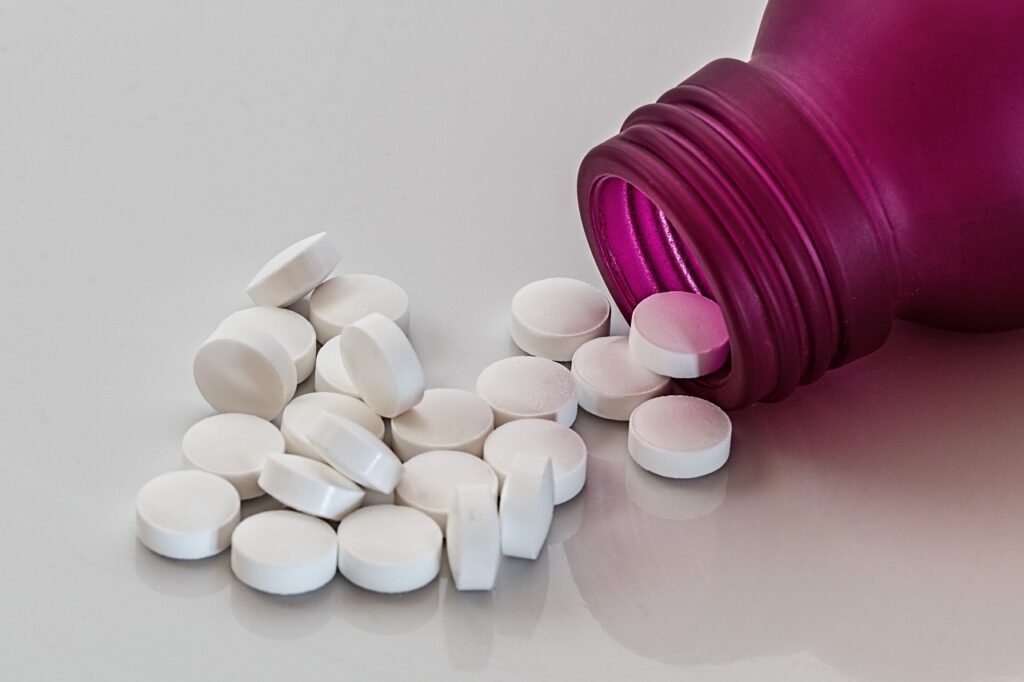20+ Years Experience
Specialist Inpatient Rehabilitiation

Alcohol addiction is a complex issue that affects millions of people worldwide.
The journey to recovery can be challenging, but understanding the signs, symptoms, and strategies for overcoming addiction can make a significant difference.
Empower yourself with knowledge and take control of your life or help a loved one through their journey.
In this blog post, we will explore various aspects of alcohol addiction help, from recognising the problem to building a new life without alcohol, and everything in between.
Alcohol addiction is a medical disorder with numerous interrelated biological and environmental factors, making it one of the most common alcohol problems, including alcohol abuse.
Acknowledging that one has an issue with alcohol is the initial step to obtaining assistance for alcohol addiction.
After that, seeking professional alcohol treatment services is crucial for recovery.
It is essential to recognise the signs and symptoms of alcohol addiction to seek help and begin the recovery process effectively.
Common signs include consuming more alcohol than originally intended, having strong desires for alcohol, and difficulty in limiting alcohol consumption.
By understanding these signs, individuals can better identify when they or a loved one may be craving alcohol and need help.
Physical indications that someone may require assistance with their alcohol consumption include an impaired ability to regulate their alcohol consumption and developing reliance on alcohol.
These indications are part of the diagnostic criteria for alcohol use disorder in the Diagnostic and Statistical Manual of Mental Disorders (DSM).
Emotional health issues, such as depression and anxiety, are also commonly associated with excessive alcohol consumption, and individuals struggling with alcoholism often experience strong cravings for alcohol.
It is crucial to recognise the signs of withdrawal, which can range from mild to severe.
Alcohol withdrawal is the physiological response to the sudden cessation of alcohol consumption following a period of prolonged alcohol intake. Symptoms may include:
Recognising these symptoms can help individuals prepare for the detoxification process and seek support.
It is vital to differentiate between alcohol misuse and dependence, as this can determine the appropriate treatment approach.
Alcohol misuse pertains to the consumption of excessive amounts of alcohol without being reliant on it.
In contrast, alcohol dependence is characterised by a physical and psychological dependence on alcohol, and withdrawal symptoms upon abstention.
Individuals who are contending with alcohol addiction may access support groups, recovery resources in the community, and addiction treatment centres.
When selecting between inpatient and outpatient treatment for alcohol abuse, factors such as the intensity and cost of the treatment must be taken into account.
AAC, a leading provider of alcohol detoxification and alcohol rehab, offers same-day admissions and an addiction treatment team dedicated to developing individualised treatment plans for each patient based on their needs.
Various strategies can be employed to overcome alcohol addiction, including:
By addressing alcohol abuse and deciding to stop drinking, individuals can change their unhealthy drinking problem.
Recognising the issue and being amenable to obtaining support can also augment the likelihood of substance abuse treatment success.
Persistence is imperative in treating alcohol addiction as it is a chronic relapsing disease.
Dedication and compliance to the recovery process are essential in stopping drinking and maintaining long-term sobriety.
Self-help techniques can play a crucial role in the recovery process.
Setting a specific quit date, removing temptations, announcing one’s goal, being honest about new limits, avoiding negative influences, and learning from past experiences may be beneficial.
Additionally, developing new coping skills to handle stressful situations, alcohol cravings, and social pressure to consume alcohol may help.
Another essential aspect of self-help techniques is preparing in advance for social situations in which alcohol may be served.
This preparation allows individuals to provide a firm yet courteous response when offered a beverage.
Avoiding triggers is a crucial element of relapse prevention, as it can help minimise the attraction of drinking.
Professional treatment options for alcohol addiction include:
Primary care and mental health providers can provide successful AUD treatment through the integration of new medications and brief counselling sessions.
A range of addiction treatment methods are available for alcohol dependence, including:
Intensive treatment for substance use is the best way forward to ensure a successful recovery.
Navigating withdrawal is a critical aspect of overcoming addiction, as withdrawal symptoms can range from mild to severe.
The intent of detox in treatment for alcohol use disorder is to cease alcohol consumption and oversee symptoms.
It is essential to understand the indications of withdrawal from alcohol, which vary in severity, and to learn how to manage these symptoms safely.
Medicine for alcohol detoxification can typically be obtained at home or when attending a local service on a daily basis.
During alcohol detoxification, round-the-clock care is available.
Individuals can receive secure treatment for symptoms of withdrawal in a medically supported unit, which can be located in an NHS inpatient unit or a medically supported residential service.
Understanding the various symptoms of withdrawal from alcohol can help prepare for the detoxification process.
As mentioned earlier, symptoms may include:
It is imperative to obtain medical assistance if you or someone you know is exhibiting withdrawal symptoms. Mild or moderate withdrawal symptoms may necessitate medication.
By recognising and addressing these symptoms, individuals can take appropriate measures to ensure a safe withdrawal process and avoid potential complications.
To manage alcohol withdrawal safely, it is recommended to:
Medically supervised detoxification is essential for long-term, heavy drinkers to guarantee a secure withdrawal process and avert medical complications.
By taking these precautions and seeking treatment, individuals can safely navigate the withdrawal process and move forward in their journey to recovery.
Building a strong support system is essential for long-term recovery from alcohol addiction. A reliable support system provides encouragement and motivation.
There are a range of support options for problem drinkers.
Fostering sober activities, attending a mutual-help group, and reconciling with supportive family and friends can help establish an alcohol support network.
Support is indispensable in the process of overcoming alcohol addiction as it offers encouragement, solace, and direction.
Long-term follow-up care is also critical to the recovery from alcohol addiction. Dedication and compliance are essential in the recovery from alcohol problems.
By building a strong support system, individuals can better navigate the challenges of recovery and maintain long-term sobriety.
Involving family and friends in the recovery process can provide:
It is imperative to be candid and honest with family and friends regarding the recovery process.
It is also essential to be tolerant and compassionate with them, as they may not comprehend the difficulties of recovery.
Establishing boundaries and being unambiguous about what kind of assistance is required can help create a supportive environment for recovery.
Participating in support groups and counselling can offer additional guidance and a sense of community during recovery.
Some of the support organisations available to assist individuals in overcoming alcohol addiction include:
Attending Al-Anon meetings, engaging in individual therapy or counselling, and participating in regular support groups are all viable options to help family and friends cope with a loved one’s addiction and gain a better understanding of the illness of addiction.
These resources can provide invaluable support and guidance on the road to recovery, helping individuals maintain their sobriety and build a fulfilling life without alcohol.
Developing a new life without alcohol involves:
These steps can be advantageous for those struggling with alcohol addiction.
By focusing on building a new life without alcohol, individuals can replace unhealthy drinking habits with more fulfilling and positive experiences.
This approach can provide a sense of purpose and satisfaction in a life without alcohol, leading to long-term recovery.
Engaging in new hobbies and activities can be beneficial in overcoming your alcohol problems. Some activities that may prove useful include:
These activities may offer a sense of purpose, fulfilment, and support during the recovery process.
By finding new hobbies and activities, individuals can fill their time with constructive pursuits, replacing the void left by alcohol with more positive and rewarding experiences.
Establishing healthy habits is of great importance for one’s general well-being and can aid in sustaining long-term recovery from alcohol addiction. Examples of healthy habits include:
Exercise can assist in reducing stress, enhancing mood, and augmenting energy levels. Adopting a well-balanced diet can help to increase one’s energy levels, reduce stress, and bolster overall health.
Stress management can assist in lowering stress levels, enhancing mood, and augmenting energy levels.
By building healthy habits, individuals can support their overall well-being and maintain long-term sobriety.
Handling setbacks in recovery is a normal part of the process, and learning from these setbacks can help strengthen one’s commitment to sobriety.
Every alcohol relapse serves as a chance to gain understanding and reaffirm abstinence.
To prevent relapse, it is important to:
By following these steps, individuals can increase their chances of maintaining sobriety and overcoming setbacks.
Discovering a new purpose in life is essential for maintaining abstinence from alcohol in the long run.
Seeking professional help, engaging in behavioural therapies, and having regular checkups with an addiction treatment provider can be beneficial in preventing relapse.
By learning from setbacks and remaining committed to the recovery process, individuals can continue to progress in their journey to sobriety.
Helping a loved one with alcohol addiction involves understanding the disease, offering support, and encouraging them to seek professional help.
Becoming informed on the risks of excessive alcohol consumption and treatment options can enable you to provide the necessary information in a considerate and encouraging manner.
Medical professionals, counsellors, inpatient alcohol rehab facilities, and outpatient centres can all provide assistance.
It is advised to contact a toll-free, confidential alcohol hotline for assistance if a loved one is suspected of having an alcohol use disorder.
Investigate potential addiction treatment alternatives before engaging in dialogue with a beloved individual regarding their alcohol dependency.
By offering support and understanding, you can help your loved one overcome their alcohol addiction and build a healthier, happier life.
In conclusion, overcoming alcohol addiction is a challenging but achievable journey.
By recognising the signs and symptoms of addiction, employing various strategies for recovery, navigating withdrawal, building a strong support system, developing a new life without alcohol, handling setbacks in recovery, and helping a loved one with alcohol addiction, individuals can successfully conquer this complex issue and achieve long-term sobriety.
Remember that help is available, and with dedication, determination, and the right support, a fulfilling life free from alcohol is possible.
Whether you want help for substance use on an inpatient or outpatient basis, we can help. Receiving treatment for heavy drinking is the best way to get your life back on track.
To help yourself stop drinking, follow these tips:
The best treatment for overdrinking is the use of FDA-approved medications like Naltrexone.
This blocks opioid receptors and stops the effects of alcohol. It is most effective when used in combination with other medicine or counselling.
Counselling can help individuals identify the underlying causes of their drinking and develop strategies to reduce or stop drinking. It can also help them develop healthier coping mechanisms and build a support network.
Common signs of alcohol addiction include:
Alcohol misuse refers to drinking too much, while alcohol dependence is an addiction that can cause withdrawal symptoms if a person stops drinking.
If you have become physically dependent on alcohol or you are worried about someone else’s drinking, please make sure to contact our experts today.
Gradually decreasing alcohol consumption over a period of weeks and seeking professional help from services specialised in addiction and withdrawal management can help ensure a safe withdrawal process.
Withdrawal from alcohol can be a difficult process, but it is possible to do it safely with the right support. Taking the time to plan ahead and seek professional help can make the process much easier and more successful.
There are a range of other services that we can provide. Have a look at the list below for more information:




















We Aim To Reply To All Enquiries With-in 24-Hours